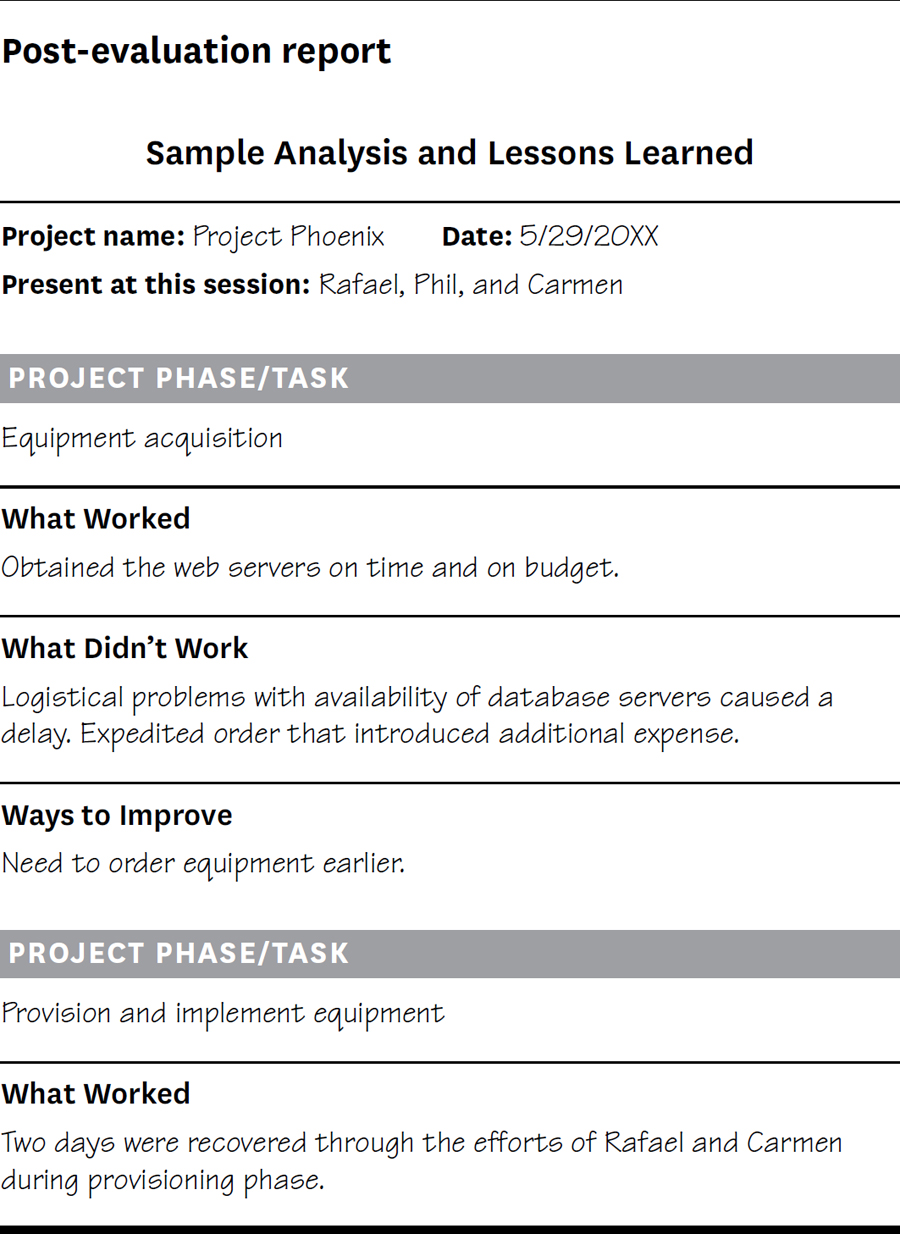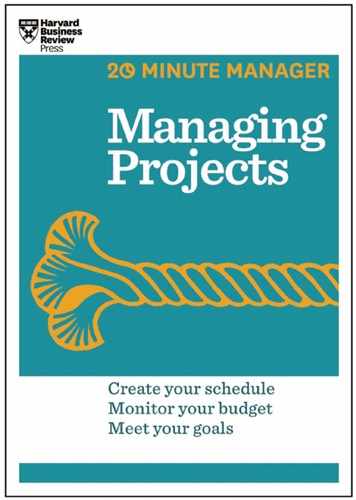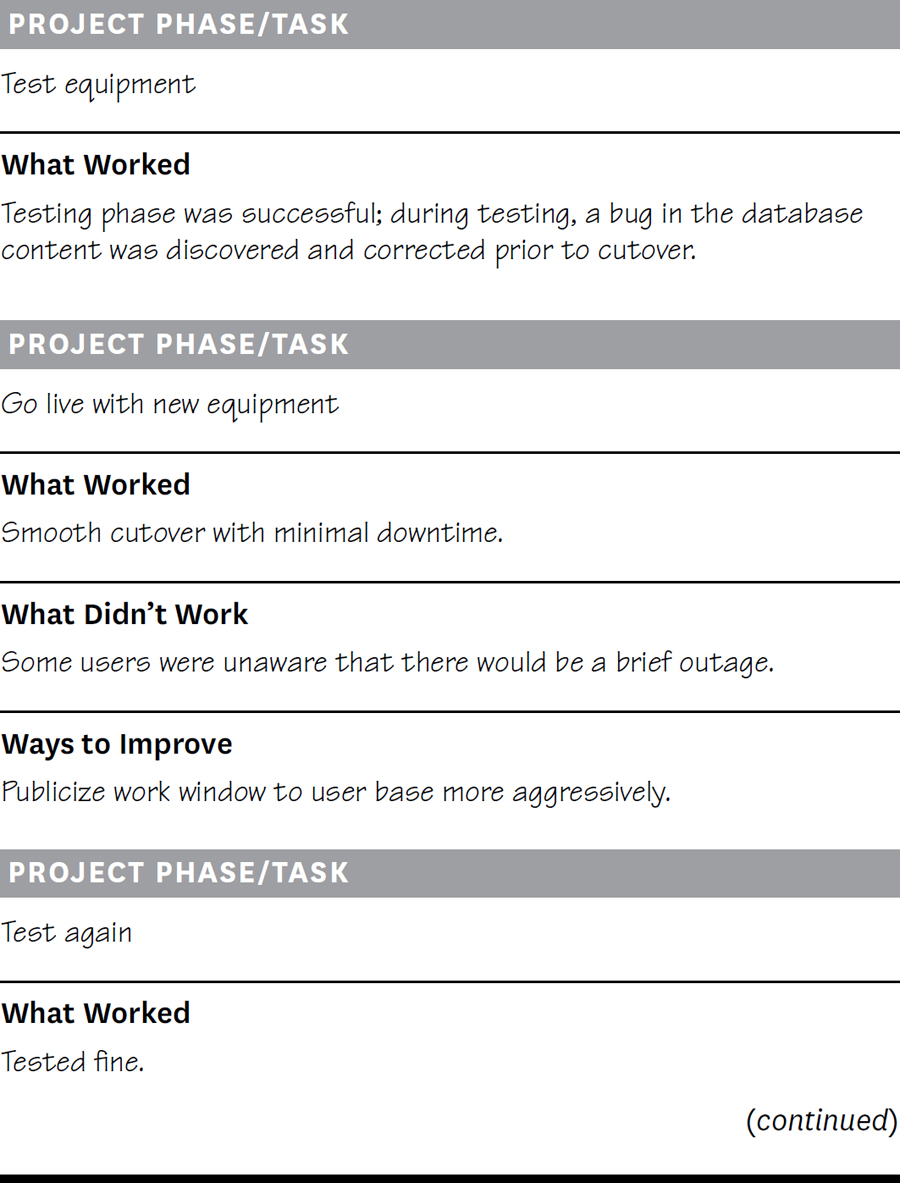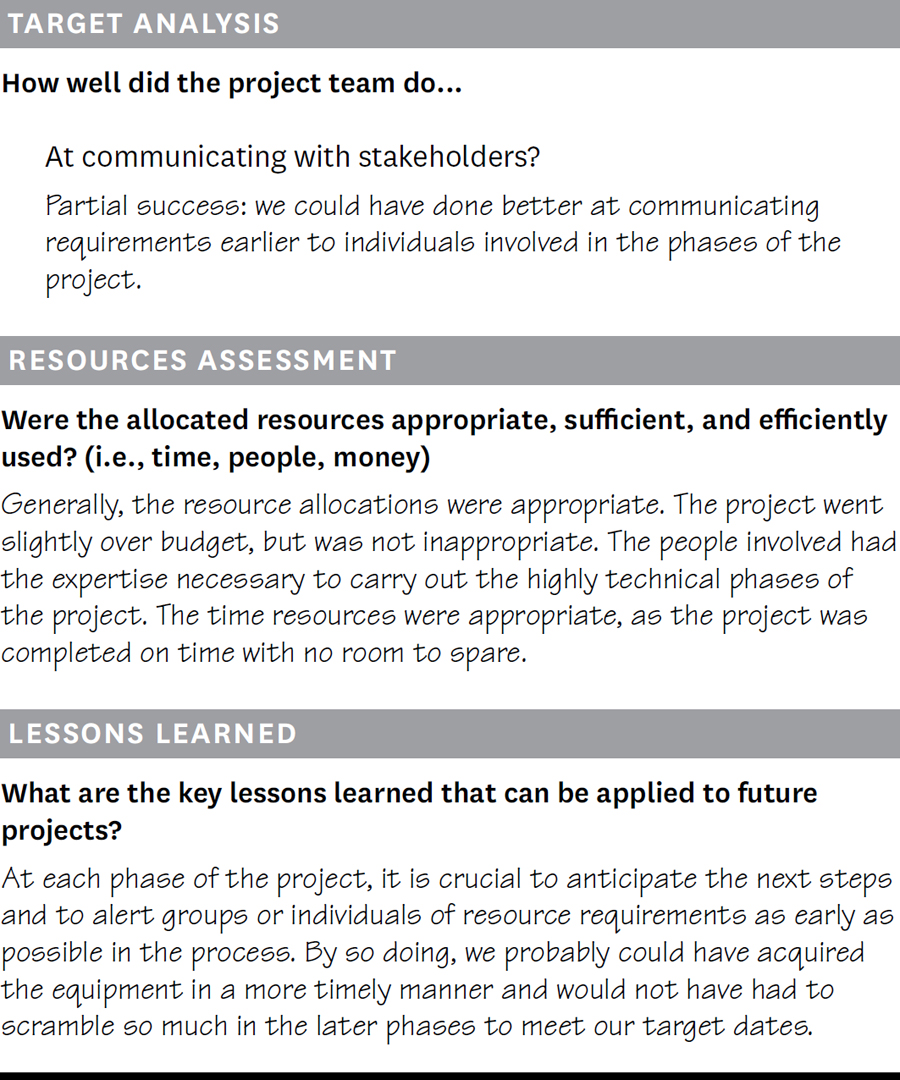Bringing Your Project to a Successful Conclusion
The final stage in the life cycle of a project is the phaseout, during which your team completes its work. If all went as planned—the tasks fulfilled, the problems solved, the stakeholders satisfied—then congratulate yourself and your team. It’s a time for celebration.
If, as is more likely, you hit some rough spots along the way—the project took longer than expected, the result was less than hoped for, or costs exceeded estimates—it’s still important to recognize the team’s efforts and accomplishments.
In either case, before the team moves on to other projects or breaks up and parts company, debrief and document the process together so that the full benefit of lessons learned can be shared.
Prepare the handoff
Some projects—a book, a house, a software program—are products, delivered to the client complete. They may need some final tweaking, but once they are done they are done, and the project manager’s responsibility comes to an end.
Other projects, such as a new call-center protocol or a new procedure for hospital intake, may not have such neat-and-clean endings. The project team develops the process, modifies it as necessary, and hands it off to operating managers on the go-live date. In principle, the operating managers are responsible for it from then on. In practice, project team members may be called in to consult and to adjust the process as necessary.
Especially in the latter case, it’s the project manager’s job to prepare the client to assume responsibility. Here is what we agreed the new process will accomplish. Here’s what we came up with, and here’s what you’ll need to do to carry it out. The transition from project to regular operations is often difficult, but you can’t avoid it—and it’s often the key to success.
Conduct a post-project evaluation
In a post-project evaluation, you bring your team together for one last meeting to identify what went well and what went wrong. Make a list of best practices and lessons learned to help future projects go more smoothly. Discuss how to improve the process and avoid problems during the next project.
Encourage a spirit of learning. Use the evaluation as an opportunity to figure things out, not as a time to criticize and blame. If some team members fear they’ll be punished for past problems, they may try to hide those problems rather than think about better ways of handling them in the future.
If possible, bring in an outside facilitator. An outsider can objectively assess the information presented and set a constructive tone for the team’s discussions. Team members often lose perspective after working so closely with one another. A skilled facilitator can sort out the emotional issues from the practical ones.
Develop a useful final report
The final report documents all the information that will be useful not only for the current project manager, team members, and stakeholders, but also for people planning future projects.
A typical post-project evaluation report includes the following:
• Project status. What were the original objectives, and what was achieved?
• Future status. Was the project a self-contained entity that has now completed its goals? Or will it be incorporated into an ongoing process? If the latter, who is responsible for that process?
• Risk assessment. Did the project encounter any pitfalls that endangered its success? Was it in danger of running significantly over budget or incurring any other major liabilities?
• Information relevant to other projects. What lessons can be applied in the future?
In preparing your report, you might find the guide in figure 7 useful.

Thank everyone—and prepare for the next project
Sit down and thank every team member personally for his or her contribution. Acknowledge the bumps experienced in the journey, but mark the conclusion with good cheer. You may want to take everyone out for pizza or a nice dinner. This is a time for celebration and pats on the back.
Of course, you shouldn’t ignore the challenges that individual team members may have presented along the way. If people were repeatedly late or uncooperative, let them know that you noticed that behavior. Help them understand that they will have a better time in the future if they can mend their ways. In your final report, make it plain that you would be glad to discuss the strengths and weaknesses of individual team members with future project leaders.
Take some time, too, for personal reflection. What were your strengths and weaknesses as a project leader? What did you learn in the course of the project, and what will you do differently next time? Project management is a skill, and like any other skill it takes a lot of practice. The more you do it, the better you will get—but only if you make a point of reflecting on your accomplishments and your setbacks.
And then? Enjoy the satisfaction of a job well done. This may be the first in a long line of successful projects.



